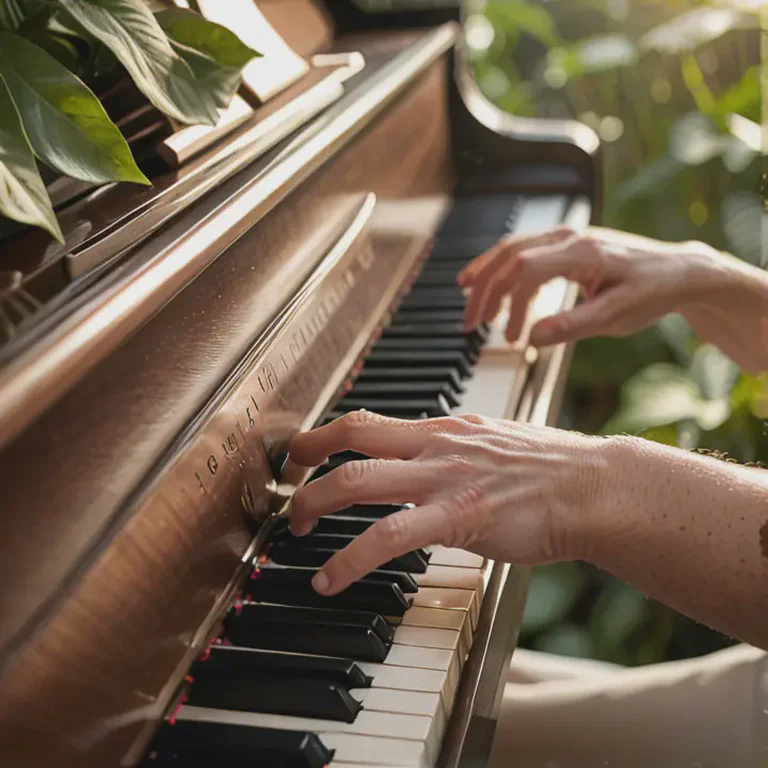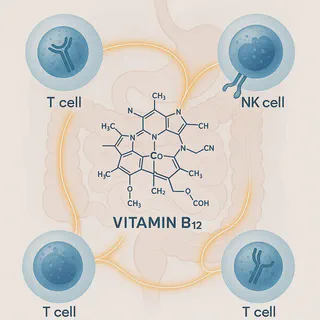Key Takeaways at a Glance
- Calm Energy: Piano playing provides focused alertness without jitters
- Cognitive Symphony: Enhances memory, attention & spatial-temporal skills
- Gut-Brain Harmony: Influences gut microbiota for improved mood & digestion
- Lifelong Neuroplasticity: Stimulates brain adaptability at any age
- ✨ Holistic Wellness: Connects brain function, gut health, and wellbeing
A Brief History of Piano, Music, and Healing: From Ancient Traditions to Modern Science
Long before neuroscience confirmed music’s profound effects on the brain and body, cultures worldwide intuitively harnessed music for healing, emotional expression, and social connection. Ancient Greeks believed music could restore harmony within the soul and body, using it therapeutically in temples and medicine. Traditional Chinese medicine integrated music to balance energy (Qi) and support organ health. Indigenous cultures globally have used rhythm and melody in rituals to promote wellbeing for millennia.
The piano itself is a relatively recent innovation in this long history. Invented around 1700 by Italian instrument maker Bartolomeo Cristofori, the piano revolutionized music with its ability to produce both soft and loud dynamics—hence its original name, gravicembalo col piano e forte (“harpsichord with soft and loud”). This expressive range allowed composers and performers to convey complex emotions, making the piano central to Western classical music, popular music, and jazz.
Throughout the 18th and 19th centuries, the piano became a symbol of culture, creativity, and education, found in salons, concert halls, and homes worldwide. It was embraced not only for entertainment but also as a tool for cognitive development, emotional regulation, and social bonding. Today, the piano remains one of the most popular instruments globally, accessible through digital keyboards and apps, and is increasingly recognized for its therapeutic potential in music therapy, brain health, and holistic wellness.
Modern science now validates what ancient traditions long understood: music—and especially active engagement like piano playing—can reshape the brain, reduce stress, and potentially influence gut health through the gut-brain axis. This article explores how the piano, rooted in centuries of musical evolution, can become a powerful tool for enhancing calm energy, cognitive power, and overall wellbeing.
Unlocking Calm Energy & Cognitive Power with Piano: The Harmonious Gut-Brain Connection
In our relentless pursuit of enhanced cognitive function and sustained energy, we often overlook a powerful, joyful tool that has been accessible to humanity for centuries: playing the piano. This isn't just about mastering a musical instrument; it's about unlocking a cascade of benefits for your brain, your gut microbiome, and overall wellbeing through the harmonious art of piano playing.
For those seeking a natural, engaging way to boost memory, sharpen focus, and maybe even soothe the digestive system, the journey could begin at the piano keys. This instrument, long associated with artistry, is now recognized by science as a potent tool for holistic health. Let's explore why — and how it connects with your gut-brain axis, immunity, and lifestyle.
The Cognitive Symphony: Piano's Impact on Brain Function
Enhanced Cognitive Processing and Memory: A Neural Workout
Playing the piano is far more than a hobby; it's a comprehensive cognitive workout. Research shows that consistently engaging with the piano creates a powerful stimulation for brain function, particularly in areas crucial for memory, language, attention, and executive functions [1]. Think of it as orchestrating neural activity, engaging multiple brain regions simultaneously. Studies suggest that even short periods of piano learning (just weeks) can enhance multisensory processing, reduce depression and anxiety symptoms, and improve mood. These rapid benefits help build a stronger, more versatile brain [6].
The cognitive demands of piano playing are multifaceted. Musicians must interpret complex notation, recognize melodic and rhythmic patterns, and coordinate intricate hand movements in real-time – a true test of mental agility. Playing the piano actively engages both hemispheres of the brain, strengthening neural pathways and enhancing overall cognitive processing [1]. This whole-brain activation contributes to improved verbal fluency, enhanced auditory processing, and sharper memory, benefits that can extend beyond musical contexts [1]. Each session at the piano reinforces neural networks, potentially boosting mental reserves. This kind of brain training complements other lifestyle strategies like critical thinking and nutritional support for cognition.
Spatial-Temporal Skills and Neural Plasticity: Rewiring Your Brain
Beyond memory and attention, musical training, including piano practice, has been linked to enhanced spatial-temporal skills, which are relevant for mathematical reasoning and problem-solving, although the direct causal link is complex and still researched [1].
One of the most compelling aspects of piano playing is its ability to stimulate neuroplasticity, the brain’s capacity to reorganize itself by forming new neural connections throughout life [1]. Brain imaging studies reveal that musicians, including pianists, often possess structural and functional brain differences, such as larger grey matter volume in motor, auditory, and visuospatial areas, and enhanced connectivity [1]. This enhanced connectivity translates to a more efficient neural infrastructure. The integration of auditory, visual, and motor systems during piano practice establishes neural pathways that support learning and adaptation — much like how intermittent fasting and chrono-nutrition can rewire metabolic pathways.
The Gut-Brain Axis: How Music Influences Our "Second Brain"
Understanding the Microbiota-Gut-Brain Connection: A Two-Way Symphony
Recent discoveries highlight the profound two-way communication between your gut and brain, known as the gut-brain axis. This intricate network means your gut microbiota—the trillions of microorganisms living in your intestines—can profoundly influence brain function, impacting mood, emotions, and cognitive performance. Conversely, your brain activity and emotional states can affect your gut function and microbiome composition, creating a continuous feedback loop. Learn more about this fascinating interplay in our deep dive on the gut-brain axis.
The balance of gut microorganisms is increasingly understood to affect overall health, potentially influencing neural pathways and brain function indirectly. Disruptions in gut microbiota — known as gut dysbiosis — are linked to various health issues, underscoring the importance of this connection for cognition and emotional well-being. This also ties into the integrity of your intestinal barrier, which can be compromised by stress and inflammation.
Musical Influence on Gut Microbiota Composition: Harmonizing Your Inner Ecosystem
Emerging research, often using animal models and general music exposure (primarily listening), reveals intriguing connections between music and gut microbiota. Studies examining the effects of musical intervention in mice have noted significant alterations in gut microbiota composition [2]. These interventions led to changes in bacterial populations, such as shifts in the balance of Firmicutes and Bacteroidetes, which were associated with physiological changes in the animal models [2, 5].
Comparing music’s effects to white noise in animals, studies suggest that music exposure might benefit gut microbiota, enhance antioxidant activity, and influence immune markers, whereas white noise appeared to have detrimental effects [5]. Another study indicated that music exposure in mice could enhance resistance to Salmonella infection, potentially by modulating the gut microbiome and related immune responses [4].
While promising, it's important to remember that most gut microbiome research so far involves animal models exposed to passive music listening. The findings may not directly translate to humans actively playing the piano. The potential link between piano playing and human gut health is more plausibly mediated indirectly, primarily through music's well-established stress-reduction effects, which stem from both active engagement and listening [3, 5].
Stress Reduction and Inflammatory Response: Calming the Inner Storm
One established mechanism by which music may positively influence the gut is through stress reduction and modulation of inflammatory responses [3, 5]. Chronic stress negatively impacts gut microbiota diversity and composition while compromising intestinal barrier function. Music, particularly calming or personally enjoyable music, has well-documented stress-reducing effects, potentially lowering stress hormone levels and promoting relaxation [3]. These effects may help maintain a healthier gut environment. This reduction in stress contributes directly to the state of 'calm energy'—focused alertness without the jitters often associated with stimulants.
While specific clinical data on piano playing restoring gut flora needs more direct evidence from the current references, the principle that reducing stress through enjoyable activities like music can benefit the gut-brain axis remains plausible [3]. The interplay between musical engagement, emotional regulation, stress reduction, and gut health is a promising area of research. You can also explore other natural stress management tools like essential oils and aromatherapy, sleep hygiene, and exercise.
Neuroplasticity and Lifelong Benefits of Piano Playing
Piano Practice and Neural Adaptation: Rewiring for Resilience
The human brain exhibits remarkable neuroplasticity throughout life, constantly forming new neural connections and reorganizing existing ones in response to learning and experience [1]. The complex demands of piano playing provide an exceptional stimulus for this adaptability. Continuously learning new pieces and refining piano skills creates novel challenges that encourage the growth of new neural pathways and the strengthening of existing ones.
Piano playing requires the seamless coordination of fine motor skills, visual perception, auditory processing, and memory, creating an intricate dance of neural networks [1]. This multisensory integration fosters robust connectivity between disparate brain regions, which enhances cognitive abilities and promotes neural plasticity—the brain's ability to adapt and rewire in response to experience [1]. The constant feedback loop between perception, cognition, and action during piano practice establishes the ideal conditions for neural growth and adaptation. This is similar to how tracking your gut health or creating a gut-healthy kitchen can reinforce positive habits and brain circuits.
Benefits for Aging Brains and Memory Preservation: A Lifelong Cognitive Shield
One of the most compelling aspects of musical engagement is its potential to support cognitive function as we age. Research indicates that older adults who regularly engage in musical activities, including learning and practicing the piano, may show benefits in cognitive functioning across multiple domains, including memory, processing speed, and executive functions, as well as improved mood and quality of life [1, 3]. The combination of cognitive engagement, fine motor coordination, emotional expression, and sensory stimulation involved in piano playing appears to contribute to brain resilience.
Piano playing has been linked to cognitive preservation in aging, with studies suggesting that learning and practicing music can act as a comprehensive mental workout engaging multiple neural systems [1, 3]. This multi-modal stimulation may help build cognitive reserve—a protective buffer potentially mitigating age-related cognitive decline.
For memory preservation, the demands of learning, memorizing, and performing musical pieces require intricate recall, which may strengthen memory systems [1]. While individual results vary, the principle of engaging the brain through complex activities like piano playing aligns with strategies for maintaining cognitive health throughout life. It emphasizes that meaningful cognitive benefits can be pursued at any age, especially when combined with nutritional support for brain health and quality sleep.
Neurological Mechanisms: How Music Transforms Brain and Body
Brain Structure and Function Adaptations
Engaging with music, particularly through active training like piano playing, induces significant changes in brain structure and function [1]. Research using neuroimaging techniques shows that musical training is associated with alterations in grey matter volume and white matter structure in auditory, motor, and multimodal integration areas [1]. Functional studies also reveal differences in how musicians' brains activate and communicate compared to non-musicians, often showing more efficient processing of auditory and sensory information [1].
These structural and functional adaptations reflect the brain's neuroplastic response to the complex demands of learning and performing music. The coordinated activity required for playing an instrument like the piano strengthens connections between sensory perception, cognitive processing, and motor control systems, leading to enhanced skills and potentially broader cognitive benefits [1]. This is similar to how exercise, fasting, and dietary changes can remodel brain and gut pathways.
From Brain to Gut: Potential Comprehensive Health Effects
While the direct neurological benefits of musical training are well-documented [1], the influence on the gut-brain axis adds another layer to music's potential health effects. As mentioned earlier, studies (often in animal models) suggest music exposure can influence gut microbiota composition and related physiological processes, including immune responses [2, 4, 5]. Research indicates potential pathways involving stress reduction and possibly direct signaling, demonstrating the interconnectedness of brain activity, stress levels, immune function, and gut health [3, 5]. The exploration of how activities like piano playing might harness these connections for whole-body health is an ongoing field, alongside other gut-supportive strategies like probiotics, fermented foods, and vitamin C.
Practical Applications: Integrating Piano into Daily Life for Health
Getting Started with Piano for Brain and Gut Health: An Accessible Path
Recognizing the compelling benefits of piano for cognitive function, memory support, and potential stress reduction offers a strong incentive to integrate piano playing into your lifestyle [1, 3]. With digital pianos and accessible learning apps, starting is easier than ever. Structured learning paths can help novices progress quickly while experiencing the cognitive engagement and mood improvements associated with musical training, even from the early stages [3, 6]. It’s never too late to start exploring the piano.
For potential gut-brain connection benefits, consistency is key. Regular piano practice fosters neural adaptations that support cognitive function [1] and provides stress-reduction benefits [3] that may indirectly influence gut microbiota balance through the gut-brain axis. Even brief daily practice sessions can contribute to these cognitive and stress-management benefits, making piano playing a health-promoting activity accessible at any age or musical background [6]. Thinking about these lifelong benefits often raises questions about when to start, especially for children, and how piano compares to other enriching activities.
Optimal Timing and Broader Arts Engagement for Children
While it's never too late to start, many parents wonder about the "best" age for a child to begin learning music or other arts. Early childhood (typically ages 3-5) is a period of rapid brain development and high neuroplasticity, making it a good time for exposure to music through singing, simple rhythm instruments, and movement. Formal lessons on instruments like the piano often begin slightly later, around ages 5-7, when fine motor skills and attention spans are more developed. However, the ideal start time is highly individual, depending on the child's interest and readiness.
It's also important to remember that the benefits extend beyond just piano or music. Engaging in related disciplines like dance and theatre offers complementary advantages. Dance enhances spatial awareness, coordination, and physical expression, while theatre fosters communication skills, empathy, emotional regulation, and collaborative abilities. Similarly, sports like tennis or soccer build teamwork, physical coordination, and quick decision-making, while strategic games like chess hone focus, planning, and problem-solving skills. Participating in community activities or clubs further develops social skills, cooperation, and a sense of belonging. Encouraging participation in a variety of arts, sports, strategic games, and community engagement can provide a well-rounded foundation for cognitive, emotional, and social development, tapping into similar principles of discipline, creativity, and brain engagement discussed throughout this article. The key is fostering enjoyment and consistent practice in whichever activity resonates most.
Combining Music with Other Health Practices: A Holistic Lifestyle
To maximize the holistic benefits for brain and gut health, piano playing can be combined synergistically with other health-promoting practices. A holistic lifestyle approach that incorporates music alongside a balanced Mediterranean-style diet, adequate sleep, regular exercise, intermittent fasting, and mindfulness practices may yield the most substantial improvements in overall wellbeing.
While the direct benefits of active participation like piano playing are increasingly supported by research, combining hands-on musical practice with mindful listening may provide complementary pathways to enhance cognitive function and potentially support gut health through stress reduction. And don't forget the power of probiotics, fermented foods, and vitamin C to nourish your gut ecosystem.
Conclusion: The Multifaceted Benefits of Piano for Whole-Body Health
Research on piano playing and music exposure reveals a compelling narrative of music’s potential whole-body benefits. Piano playing, by engaging multiple brain regions simultaneously, enhances cognitive abilities like memory, attention, and processing speed, with benefits observed even after short learning periods [1, 3, 6]. Furthermore, music’s stress-reducing effects may promote positive shifts impacting the gut-brain axis, contributing to physical and mental wellbeing, although direct effects on gut microbiota from piano playing specifically require more research, with current insights often derived from general music exposure studies in animals [2, 4, 5].
These cognitive benefits appear to span a lifetime. Children learning music may experience enhanced cognitive development, while older adults playing piano show potential resilience against age-related cognitive decline [1, 3]. Music-induced neuroplasticity contributes to a cognitive reserve that benefits individuals across decades, emphasizing it's never too late to benefit from musical engagement [1].
As research furthers our understanding of the intricate connections between music, brain function, stress response, and gut health, piano playing emerges as a particularly valuable activity. Its combination of cognitive challenge, emotional expression, and sensory engagement creates a powerful stimulus for positive neurological and physiological changes.
Whether you're a beginner or a virtuoso, even a few minutes at the keys can be a powerful investment in your brain and body, potentially yielding lasting dividends in cognitive resilience, emotional wellbeing, and a more balanced state influenced via the gut-brain connection. And remember, combining piano with a gut-friendly lifestyle, smart meal timing, probiotics, and critical thinking can amplify your results.
So, why not sit at the keys today and start reaping these benefits?
This article is for informational purposes and not a substitute for professional medical advice.
Frequently Asked Questions (FAQ)
Is it too late to start learning piano?
Absolutely not! Research shows that adults of any age can experience cognitive and emotional benefits from learning piano or other musical instruments. Neuroplasticity continues throughout life, so it’s never too late to start.
Does listening to music have the same benefits as playing?
Listening to music can reduce stress, improve mood, and may influence gut health indirectly. However, active playing engages more brain regions simultaneously, providing a more comprehensive cognitive workout and potentially greater neuroplastic benefits.
Can piano really improve gut health?
Direct evidence linking piano playing to gut microbiome changes is limited. Most gut-related findings come from animal studies involving passive listening. However, piano playing’s stress-reducing effects may indirectly support gut health by promoting a healthier gut-brain axis.


